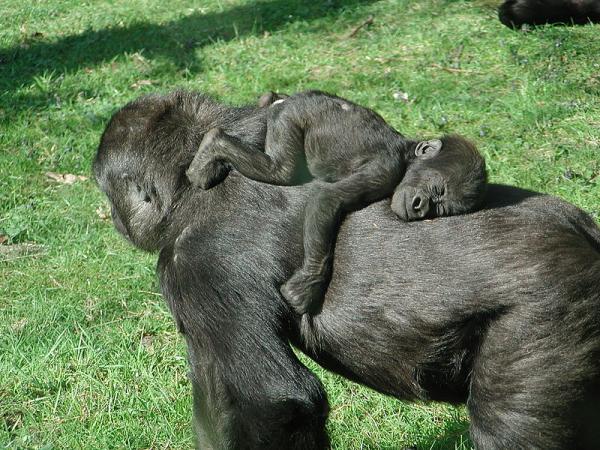It's sleep awareness week and we are trying to, well, be more aware of our sleep.
Sleep is a fascinating topic in large part because we know that we will die without it but don't really understand why. Why we sleep is a perpetuating question in neuroscience along with what our brain is doing while we sleep.
A new study from the Department of Evolutionary Anthropology at Duke University asked the question, how much do humans sleep when compared with other non-human primates?
The study looked at the amount of time that different primates spend sleeping. In doing so, they found that primates vary widely in their sleep durations. (See the figure below.) Most species sleep somewhere between nine and 15 hours a day, with humans averaging around seven. Remarkably, of the 30 primates included in the study, humans sleep the least per 24-hr period.

https://www.sciencenews.org/article/humans-primates-sleep-evolution?tgt=nr
Some say that the sample size is too small, as there are an estimated over 300 primate species. Regardless, the question remains out of the 30 tested, are the other animals sleeping more than they need to, or are humans under-sleeping?
The authors hypothesize why humans are lagging behind when it comes to shut eye. First, they suggest that when our ancestors made the switch from sleeping in trees to sleeping on the flat surface, some members had to stay awake to warn against predators. Second, we are more complicated than other species with more social connections that have come at the cost of sleep. Also, many mammals sleep during several periods of time throughout the day, not in one main chunk of the night as humans do. This change in our sleep may also have decreased our overall time spent sleeping.
Are we sleeping less than we should or just less than other primates?
The researchers attempt to tackle this question. Using a prediction model, they suggest that humans should sleep about 9 and a half hours a day. If that is the case, we are not even close to sleeping as much as we should. Why not?
With our current to do lists being as long as they are, it's a wonder we find time to sleep at all. Also, many people have the time and the desire to sleep more, but, have trouble sleeping. My colleague Alex Berezow, highlighted a Morbidity and Mortality Weekly Report in 2016 suggesting that about 20% of young adults (aged 20-39) have trouble sleeping with the problem increasing with age. Roughly one-third of people aged 40 and over report difficulty sleeping and women report more trouble than men.
The take home messages are 1) we sleep far less than other animals like us, 2) we don't sleep as much as we should and 3) many people have trouble sleeping. So, even though I feel more aware of my sleep, I am left unsure of what to do about this bleak news. Maybe a nap will help.
Source: C.L. Nunn and D.R. Samson. Sleep in a comparative context: Investigating how human sleep differs from sleep in other primates. American Journal of Physical Anthropology. Published online February 14, 2018. doi:10.1002/ajpa.23427.




